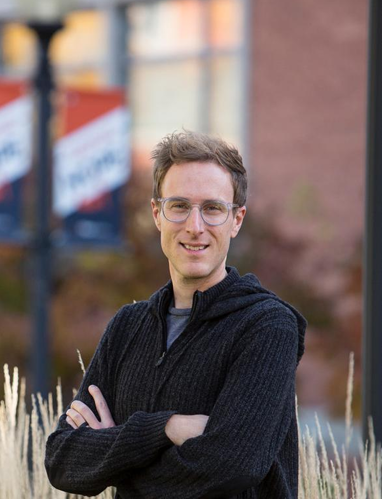
‘Flourishing After Leaving Religion’ Talk by Daryl Van Tongeren, Ph.D. Set For September 26th
Daryl R. Van Tongeren, Ph.D., is a professor of psychology at Hope College and the director of the Frost Center for Social Science Research. A social psychologist, he has published more than 250 scholarly articles and chapters, and four books, on topics such as religion, meaning in life, and virtues. Most recently, his work has focused on the psychological and social processes of leaving religion and undergoing religious change. His research has been covered by numerous media outlets, including the New York Times, The Atlantic, and Hidden Brain, and has been supported by numerous grants from the John Templeton Foundation. He has won national and international awards for his research and has earned Fellow status at the Association for Psychological Science, Society for Experimental Social Psychology, Midwestern Psychological Association, and International Society for Science and Religion. He is an associate editor for The Journal of Positive Psychology and a consulting editor for Psychology of Religion and Spirituality.
He will be giving his talk “Flourishing After Leaving Religion” on Friday, September 26, 3:00pm – 4:00pm in room 115 DPC.
In his own words, “The religious landscape of the United States is changing. Increasingly more people are leaving religion, and many are searching for nonreligious spiritual answers to deep existential questions. For some, this process is liberating and exhilarating; for others, it is marked by grief, anxiety, and fear. This talk harnesses cutting-edge empirical research to explore why people leave religion, how this identity shift changes their life, and the various forms of post-religious flourishing may take. First, I first explore four primary reasons why people are leaving religion. Understanding that no religious deidentification process is the same, I discuss several unique challenges people may face when as they walk away from their faith, including the tendency for features of one’s religious past to linger and the challenges of social relationships. Next, I present recent work on how nonreligious individuals strive to satisfy their desire for existential comfort and security outside of traditional religious structures. Finally, I outline various pathways toward flourishing amid a changing religious identity.”
This event is free and open to the public
